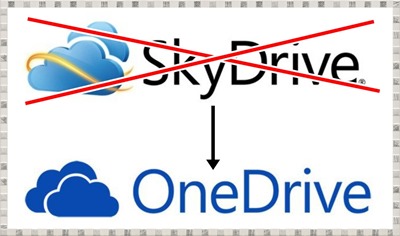Social media has become an integral part of our lives, and it has also revolutionized the way businesses operate. In today’s digital age, social media marketing has emerged as a powerful tool for businesses to connect with their target audience and drive growth. The impact of social media marketing on business growth cannot be underestimated.
The Impact of Social Media Marketing on Business Growth
One of the key advantages of using social media for business is its ability to reach a large audience. With billions of people using social media platforms like Facebook, Instagram, and Twitter, businesses have the opportunity to connect with potential customers from all over the world. This global reach allows businesses to expand their customer base and increase their brand visibility.
Moreover, social media marketing is cost-effective compared to traditional marketing methods. Creating a social media account is free, and businesses can reach a wide audience without spending a fortune on advertising. This makes it an ideal option for small businesses with limited marketing budgets. By leveraging social media platforms, businesses can promote their products or services at a fraction of the cost of traditional advertising channels.
Another significant impact of social media marketing on business growth is its ability to build brand loyalty. Social media platforms provide businesses with a unique opportunity to engage with their customers on a personal level. By responding to customer queries, addressing concerns, and sharing valuable content, businesses can establish a strong connection with their audience. This connection fosters trust and loyalty, leading to repeat business and positive word-of-mouth recommendations.
Furthermore, social media marketing allows businesses to gather valuable insights about their target audience. Social media platforms provide analytics tools that enable businesses to track the performance of their posts, measure engagement, and understand their audience demographics. This data can be used to refine marketing strategies, tailor content to the preferences of the target audience, and identify new market opportunities. By leveraging these insights, businesses can make informed decisions that drive growth and maximize their return on investment.
In addition to these benefits, social media marketing also plays a crucial role in enhancing search engine optimization (SEO). Social media platforms are considered high-authority websites by search engines, and having a strong social media presence can positively impact a business’s search engine rankings. By regularly posting relevant and engaging content, businesses can improve their visibility in search engine results, driving organic traffic to their website and increasing their chances of converting leads into customers.
In conclusion, the impact of social media marketing on business growth is undeniable. It provides businesses with a cost-effective way to reach a large audience, build brand loyalty, gather valuable insights, and enhance search engine optimization. By leveraging social media platforms, businesses can connect with their target audience on a personal level, establish a strong online presence, and drive growth. In today’s digital age, social media marketing has become a necessity for businesses looking to stay competitive and thrive in the market. So, if you haven’t already, it’s time to harness the power of social media for your business’s success.
Effective Strategies for Utilizing Social Media Platforms in Business
Social media has become an integral part of our lives, and it has also revolutionized the way businesses operate. With millions of people using platforms like Facebook, Instagram, and Twitter, it is no wonder that businesses are leveraging these platforms to reach their target audience and drive sales. In this article, we will discuss some effective strategies for utilizing social media platforms in business.
First and foremost, it is important to have a clear understanding of your target audience. Who are they? What are their interests? What social media platforms do they use the most? By answering these questions, you can tailor your social media strategy to reach the right people at the right time. For example, if your target audience consists of young adults, platforms like Instagram and Snapchat may be more effective than Facebook.
Once you have identified your target audience, it is time to create engaging content. Social media users are bombarded with content every day, so it is crucial to stand out from the crowd. One way to do this is by creating visually appealing posts. Use high-quality images and videos that capture the attention of your audience. Additionally, make sure your content is relevant and provides value to your followers. Whether it is sharing industry news, offering tips and advice, or showcasing your products or services, your content should be informative and engaging.
Another effective strategy is to engage with your audience. Social media is not just a one-way street; it is a platform for conversation and interaction. Respond to comments and messages promptly, and encourage your followers to share their thoughts and opinions. This not only helps build a sense of community but also shows that you value your customers’ feedback. Additionally, consider running contests or giveaways to encourage user participation and increase brand awareness.
In addition to engaging with your audience, it is important to monitor and analyze your social media efforts. Most social media platforms offer analytics tools that provide valuable insights into your audience’s behavior and preferences. By analyzing this data, you can identify what content resonates the most with your audience, which platforms are driving the most traffic, and what times of the day are most effective for posting. This information can help you refine your social media strategy and make data-driven decisions.
Furthermore, don’t be afraid to collaborate with influencers or other businesses in your industry. Influencer marketing has become a powerful tool for businesses to reach a wider audience and build credibility. Find influencers who align with your brand values and have a significant following, and collaborate with them to create content or promote your products or services. Similarly, partnering with other businesses can help you tap into their existing customer base and expand your reach.
Lastly, it is important to stay up to date with the latest trends and changes in social media. Platforms like Facebook and Instagram are constantly updating their algorithms and introducing new features. By staying informed, you can adapt your strategy accordingly and stay ahead of the competition.
In conclusion, social media platforms offer businesses a unique opportunity to connect with their target audience and drive sales. By understanding your audience, creating engaging content, engaging with your followers, monitoring and analyzing your efforts, collaborating with influencers and other businesses, and staying up to date with the latest trends, you can effectively utilize social media for business success. So, don’t miss out on the potential of social media and start implementing these strategies today.
Building a Strong Brand Presence through Social Media Engagement
Social media has become an integral part of our lives, and it has also revolutionized the way businesses operate. In today’s digital age, building a strong brand presence through social media engagement is crucial for the success of any business. With millions of users actively using platforms like Facebook, Instagram, Twitter, and LinkedIn, businesses have a unique opportunity to connect with their target audience and establish a strong online presence.
One of the key benefits of using social media for business is the ability to reach a large audience. Unlike traditional marketing methods, social media allows businesses to connect with potential customers from all over the world. By creating engaging and shareable content, businesses can increase their brand visibility and attract new customers. Moreover, social media platforms provide valuable insights and analytics that can help businesses understand their audience better and tailor their marketing strategies accordingly.
Engagement is the key to building a strong brand presence on social media. It’s not enough to simply post content; businesses need to actively engage with their audience to foster a sense of community and loyalty. Responding to comments, messages, and reviews in a timely manner shows customers that their opinions and feedback are valued. This level of interaction helps to build trust and credibility, which are essential for long-term success.
Another effective way to engage with the audience is by running contests and giveaways. People love freebies, and hosting a contest or giveaway on social media can generate a lot of buzz around a brand. By encouraging users to like, share, and comment on a post, businesses can increase their reach and attract new followers. This not only helps to build brand awareness but also creates a sense of excitement and anticipation among the audience.
In addition to engagement, businesses should also focus on creating high-quality content that is relevant and valuable to their target audience. Social media users are constantly bombarded with information, so it’s important to stand out from the crowd. By providing informative and entertaining content, businesses can position themselves as industry experts and thought leaders. This not only helps to build trust but also encourages users to share the content with their own followers, further increasing brand visibility.
Social media platforms also offer various advertising options that can help businesses reach their target audience more effectively. From sponsored posts to targeted ads, businesses can leverage these tools to increase brand awareness and drive traffic to their website. By carefully selecting the target audience based on demographics, interests, and behaviors, businesses can ensure that their ads are seen by the right people at the right time.
Lastly, businesses should regularly monitor and analyze their social media performance to identify areas for improvement. By tracking metrics such as engagement rate, reach, and conversion rate, businesses can gain valuable insights into what is working and what needs to be adjusted. This data-driven approach allows businesses to refine their social media strategies and optimize their efforts for maximum impact.
In conclusion, building a strong brand presence through social media engagement is essential for the success of any business in today’s digital age. By actively engaging with the audience, creating high-quality content, and leveraging advertising options, businesses can increase brand visibility, attract new customers, and foster a sense of community and loyalty. With the right strategies and consistent effort, social media can be a powerful tool for business growth and success.












